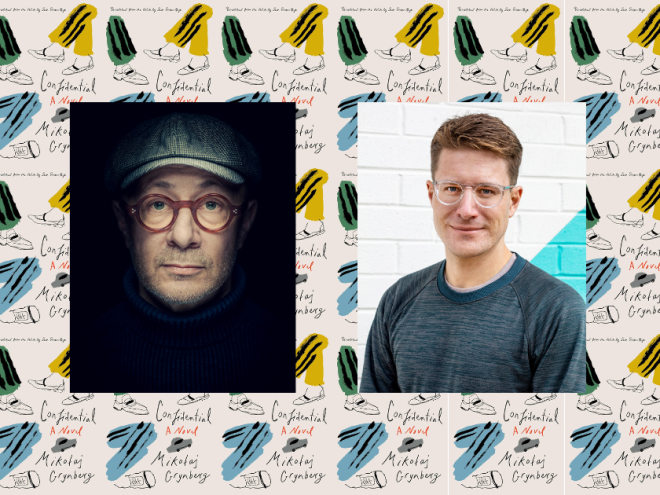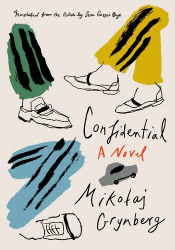The thirty-one stories that comprise this fiction debut by writer and oral historian Mikołaj Grynberg span years – even decades – in their reckoning with the aftermath of the Holocaust on the lives of the Polish people. Compressing time in such an extreme way allows Grynberg to depict the types of wounds that fester over lifetimes and to observe traumas that are passed down family lines and infect an entire society.
To achieve as much as he does in this slim and elegant volume, Grynberg forgoes traditional narrative conventions, such as scene setting and character description, and hones in on his characters’ vivid voices to evoke their sad, strange worlds. Each vignette takes the form of a monologue: a plea, a complaint, a cry for help, a joke, a rant, a history lesson. Several directly address a hypothetical Jewish reader, presumably Grynberg himself, demanding compassion, absolution, understanding, or explanations. “What is it about you Jews, that whatever anyone says about you, it’s never a neutral subject?” snarls one rattled Polish man after learning, in middle age, that he is Jewish. Grynberg spent years interviewing Polish Jews for his previous three works of nonfiction, and in I’d Like to Say Sorry but There’s No One to Say Sorry To, he distills the essence of the stories people have left in his safekeeping.
Grynberg’s furtive, agitated protagonists are wracked with doubt and crippled by their secrets. They crave connection and catharsis and bristle against their lots in ways both horrifying and darkly humorous: a Polish Jewish man joins Christian pilgrimages to Israel year after year to disguise the true nature of his visits to his family in Tel Aviv; a wealthy gentile with Semitic features begs a rabbi to provide him with a “certification of non-Jewishness” to curb the antisemitic attacks wrought on him by resentful employees; three modern day Polish girls plays at being hidden Jews during World War II, enraging their antisemitic father; a man feels so conflicted in his identity that he’s able to play chess against himself, the Pole against the Jew, “…and you know who wins? Sometimes one, sometimes the other.”
The nuances of Poland’s difficult Jewish history are most directly addressed in the story “Common Good,” in which a history teacher instructs the writer how to write about Poland’s past in a palatable fashion:
Please keep painting a beautiful picture of that forgotten Jewish world for us, because we miss it…[But] you can’t slander the nation…Who do you owe your lives to? To us, the Poles, of course. We put our own families’ lives on the line to save you…But all we ever hear from your bunch is how the Poles were worse than the Germans. If you people want to keep living here, you’d better accept reality.
These stories are fictional, but the threats, sadly, are not. Since the right-wing populist Law and Justice party came into power in 2015, a rewriting of history has begun. Accounts of the war that allege Polish complicity with the Nazis are now said to dishonor the country; academics have been ordered by civil courts to apologize for their work on the Holocaust. Grynberg, in an interview with his American translator, Sean Gasper Bye, talks about the changing reception of his work in Poland. “Over the last few years, I’ve become someone who’s periodically considered an enemy of Poland. Someone you can tell to his face that he isn’t a Pole.”
Basia Winograd, a New York City – based writer and filmmaker, teaches creative writing at Hunter College. She was awarded a grant from the Memorial Foundation for Jewish Culture for her novel in progress.





